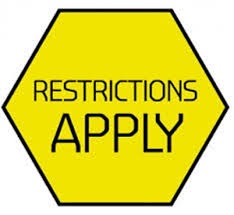
For many new dentists, a dental associate employment agreement is the first of many legal documents a dentist will encounter in their long career. A well-drafted associate agreement will outline the parties’ obligations and the expectations of the working relationship. These are legally binding documents, so it pays to understand them in full before signing one. Knowing what to look out for can save you from many problems down the line.
What Are Dental Associate Agreements?
 A dental associate agreement is a contract that defines the terms of the employment between a dental associate and the dental practice. While many terms may have been discussed during the interview and hiring process, the associate agreement outlines the party’s rights and obligations and sets forth the terms of the relationship going forward.
A dental associate agreement is a contract that defines the terms of the employment between a dental associate and the dental practice. While many terms may have been discussed during the interview and hiring process, the associate agreement outlines the party’s rights and obligations and sets forth the terms of the relationship going forward.
Who Are They For?
Most commonly, dental associate agreements are for newly minted dentists looking to work at an established dental practice to build experience and knowledge. However, associate agreements can also be for established dentists or specialists looking to work part-time at a practice.
Key Parts of the Associate Agreement
 The terms of an associate agreement may differ depending on whether or not you’re working full-time, and whether you are classified as a W-2 employee or independent contractor. If you are an employee, your employer will be responsible for withholding employment taxes on your behalf. If you are properly classified as an independent contractor, you have to do this on your own.
The terms of an associate agreement may differ depending on whether or not you’re working full-time, and whether you are classified as a W-2 employee or independent contractor. If you are an employee, your employer will be responsible for withholding employment taxes on your behalf. If you are properly classified as an independent contractor, you have to do this on your own.
Additionally, working as a full-time dentist at the practice may also come with benefits, including paid time off, payment of continuing education benefits, and whatever insurance and retirement packages the practice offers. With that said, here are some parts of the agreement you should keep in mind:
- Duties: An outline of your daily responsibilities while working for that practice, including whether you’ll be required to provide call coverage and at which locations you will be expected to work.
- Term & Termination: The length of the agreement and reasons why one or both parties may terminate the agreement early.
- Compensation: An outline of how the dentist will be compensated, including whether you’ll be paid a straight salary, based on production or collection, or a mixed formula that combines base salary plus the dentist’s production numbers.
- Benefits: A list of perks you may get as part of the employment relationship, including paid time off, payment of licensure fees, continuing education benefits, and medical & dental insurance.
- Professional liability insurance: How much, if any, the dental practice covers the associate’s errors and omissions through insurance.
- Disputes: Details how the parties must settle any disputes.
- Non-Competition Clause: Outlines whether you can work for other competitors during your tenure. It may even establish the length of time before you can begin working for another company after termination or the end of the contract (although this is unenforceable in some states).
What To Should Look Out For

Many dental associates miss some of the finer details in these lengthy agreements. If you don’t know what you’re looking for, you can quickly run into problems with your employer.
Here are things you should look out for:
Salary or Percentage Based Compensation
You want to know if you are getting a fixed salary each month or if your services are compensated based on production- or collection-based formula. Many dental practices pay associates based on the amount of revenue they produce and/or the practice collects. Such percentage-based compensation can help you generate more revenue depending on how busy the practice is.
However, it can also mean you will earn less if the practice isn’t putting enough “production” based patients on your schedule. Another downside to the percentage-based compensation model is the uncomfortable feeling many young associates experiences of having to push or upsell cases on nervous patients. Associates should consider negotiating a base pay in addition to their percentage pay to make sure they have a guaranteed earning each month.
Insurance
 You need to know if the employer will cover your malpractice insurance or if you’ll be expected to cover this expense. If the dental practice will pay for your malpractice insurance, it’s also important to determine if the insurance will be “occurrence” or “claims-made.”
You need to know if the employer will cover your malpractice insurance or if you’ll be expected to cover this expense. If the dental practice will pay for your malpractice insurance, it’s also important to determine if the insurance will be “occurrence” or “claims-made.”
With occurrence, the policy covers acts or omissions while the dentist is employed, even if the claim is made after the dentist leaves that position. Claims-made policies provide coverage only for claims arising out of conduct during the associate’s employment and while the associate is still employed with that employer. If the policy is claims-made, then you may have to pick up a tail policy after you leave your position with the employer.
At-Will vs Term Contracts
Associate agreements can be “at-will” or for a set term. At-will agreements allow either party to terminate the agreement for any reason (other than discriminatory reasons).
 Agreements for a certain term are set for a number of months or years. When your agreement is for a set term, it’s important to understand your renewal options for the employment relationship. Typically, the agreement will spell out how the parties may renew the employment agreement (by written notice within 90 days of the end of the term). Sometimes, however, the agreement will include an “evergreen” provision which means the contract will renew automatically unless either party opts out before a certain time. It’s smart for an associate to use the end of the contract term to reevaluate the employment relationship, and potentially negotiate a better compensation, before the contract renews automatically.
Agreements for a certain term are set for a number of months or years. When your agreement is for a set term, it’s important to understand your renewal options for the employment relationship. Typically, the agreement will spell out how the parties may renew the employment agreement (by written notice within 90 days of the end of the term). Sometimes, however, the agreement will include an “evergreen” provision which means the contract will renew automatically unless either party opts out before a certain time. It’s smart for an associate to use the end of the contract term to reevaluate the employment relationship, and potentially negotiate a better compensation, before the contract renews automatically.
You’ll also want to know the consequences of ending the contract early. Not all dental associates are going to stay in large practices for the long term. Some will want to start a practice of their own. Always look at the fine print with your long-term goals in mind, so you don’t get into something you regret down the line.
Restrictive Covenants
 Restrictive covenants may take many different forms in a dental associate agreement. These covenants may include exclusivity requirements (requiring you to work only for that employer), non-disclosure agreements, non-solicitations clauses (including non-solicitation of patients or employees), and non-competition agreements (restricting your employment after you leave the dental practice).
Restrictive covenants may take many different forms in a dental associate agreement. These covenants may include exclusivity requirements (requiring you to work only for that employer), non-disclosure agreements, non-solicitations clauses (including non-solicitation of patients or employees), and non-competition agreements (restricting your employment after you leave the dental practice).
The dental practice owner will try to include broad restrictions that protect the practice. Associates on the other hand will want to limit the restrictions placed on them, especially as it relates to opening their own practice after the employment relationship ends. Whether the restrictions are enforceable largely depends on the jurisdiction the practice is located. In California, for instance, an employer cannot restrict a dentist’s ability to work for another practice in the same neighborhood or open their own practice, after leaving their employment.
As a young doctor starting your career, it’s critical to understand what restrictive covenants might be included in the associate agreement and whether or not they can affect your ability to work or open a practice in the future.
Work Volume & Type of Dentistry Performed
While the associate agreement will not spell out your work volume, it’s important to understand the practice’s philosophy, fee structure (cash, insurance, Medical), and volume of patients the practice typically sees during a day before signing your agreement. Understanding these data points will allow you to determine if the position is right for your practice philosophy and if it will meet your salary expectations.
What Happens During a Dispute?
 First, it’s important to review your contract with a legal professional to make sure your rights are protected before you get into a binding agreement. If a problem occurs after you’ve entered a dental associate agreement and you need to dispute it, you’ll need legal help, but it’s much tougher to bend issues towards your favor if the contract favors your employer. If you need help to feel confident about your associate agreement, reach out to us with questions — we’d be happy to help. Schedule today to get the help you need.
First, it’s important to review your contract with a legal professional to make sure your rights are protected before you get into a binding agreement. If a problem occurs after you’ve entered a dental associate agreement and you need to dispute it, you’ll need legal help, but it’s much tougher to bend issues towards your favor if the contract favors your employer. If you need help to feel confident about your associate agreement, reach out to us with questions — we’d be happy to help. Schedule today to get the help you need.
